Leadership Development

People are multi-faceted
Your approach to Leadership Development should be too.
In modern-day business, both the words “leadership” and “management” are two terms that emerge in descriptions of essentially the same competency: achieving results through others.
Leadership is all about people. It is a skill set that brings into play many interrelated parts including: vision, trust, influence, character, service, motivation, inspiration, and empowerment, just to name a few. But in virtually every business environment everywhere in the world, leadership depends on the ability of the leader to understand how to work with the people around them.
The most effective leaders know their team: what makes them tick, what strengths they possess, how they prefer to go about their work, and what activities will excite or deflate them. Leadership is the business of people, and by understanding the individual make-up of each and every team member, leaders are able to be more effective in everything they do.
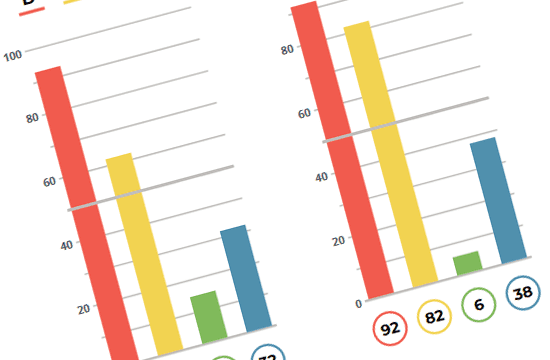
DISC Profile in Leadership Development
This assessment measures 4 core behavioural tendencies.
Leadership concerns the ability to influence others behaviour in order to accomplish an objective. The ability to influence others is greatly enhanced by training on a behavioural model. DISC is the world’s most popular behavioural tool. One of the most common applications of DISC is in leadership development training, used as the basis of improving relationships, trust and communication between managers and teams.
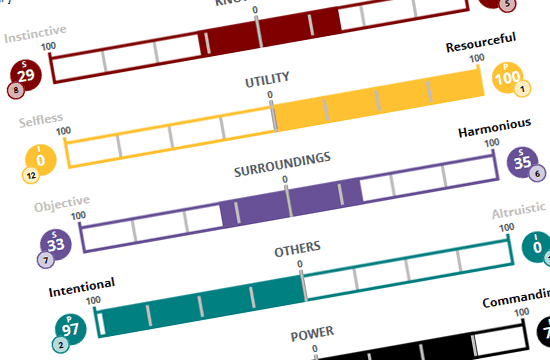
Driving Forces Profile in Leadership Development
This assessment measures 12 personal drivers or motivators.
Motivation is highly personal. What matters for one person may mean nothing to their peers. Our personal drivers or motivators determine what sort of work will engage us and what will make us unhappy and unproductive. By understanding their own motivators and those of the people they manage, leaders can understand the things that inspire trust and commitment, and then tailor their management strategies to suit individual needs.
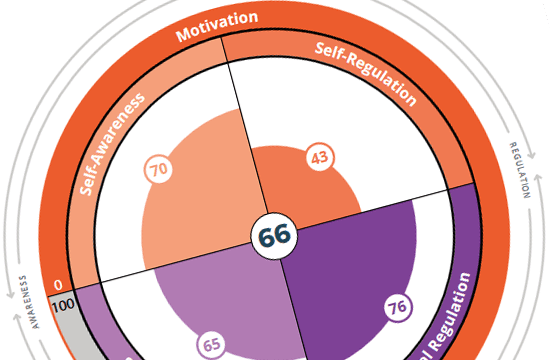
TTI Emotional Quotient in Leadership Development
This assessment measures 5 core dimensions of EI.
Becoming more emotionally intelligent is the implied goal of virtually all leadership training. The TTI Emotional Quotient™ is used across the globe to help leaders of all shapes and sizes to become more self-aware, understand potential blind spots in their leadership style, improve trust and relationships with their team, and to help them get the most out of themselves and the people they lead.
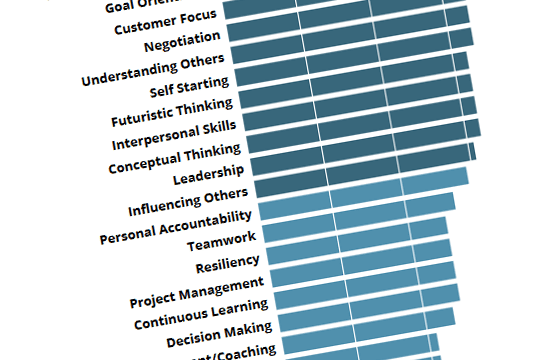
DNA Profile in Leadership Development
This assessment measures 25 competencies or soft skills.
The DNA profile is so named because there are 25 soft skills that are the basis (or building blocks) of performance across many different roles. Identifying the level of mastery of each of these competencies allows leaders to understand where they should focus their time and attention to best manage their own professional development as well as the development of those who they manage.
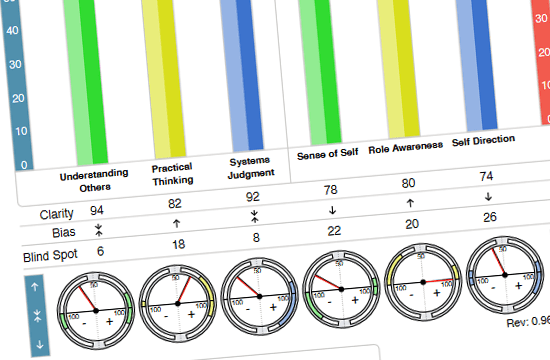
Acumen Capacity Index in Leadership Development
This assessment measures 3 core dimensions of thought.
Each of us has a unique thought process or model through which we filter and assess our views of the world. These patterns of thought determine our acumen: our ability to make good judgments (related to, but different from, business acumen). Understanding our natural thought patterns allows us to understand our natural talents and biases, making us more self-aware and better decision makers in the process.
Your Difference: Multi-Science Profiles
One of the advantages of the TTI suite of tools is that we offer you “multi-science” reports, which provide integrated feedback. With this multi-dimensional view, leaders and managers are able to understand themselves and others at a much deeper level than just using a single assessment. The additional advantage to multi-science assessments is they provide you with a layered development plan for leaders. For example, leaders can work through information on their behavioural style, driving forces, and emotional intelligence in one short sitting or they can tackle it one phase at a time over several months. Multi-science reports provide better options for training, more comprehensive information, and more “ah-ha” moments.
